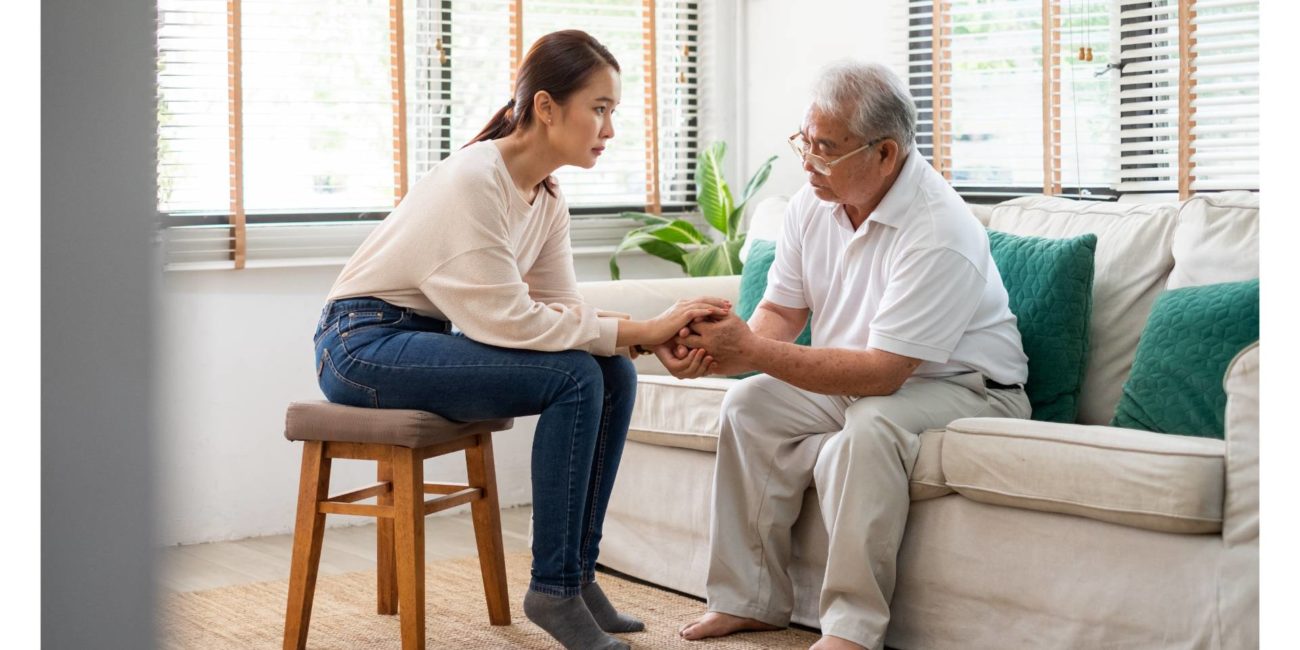You might find yourself struggling to answer and understand your loved one with dementia. Dementia can change the way people express themselves, and oftentimes needs and desires are vocalized in coded and confusing ways. Surprisingly, one of the most common questions we get from dementia patients goes something like “have you seen my mother?” or “when can I go home?”
Those who are new to caring for a loved one with dementia might take this question at face value, or dismiss it all together. But in reality, questions like these can be metaphors for something else. Their meaning lies beyond the literal. For many of us, mothers are the people that care for us from the beginning. They represent that safe space where we could count on care and nurturing. If we had a need, they were likely to meet it for us.

Strange Questions
People with dementia ask about “going home” often. Long term memory is triggered and they long for the nostalgia and security they associate with home. They may already be at home, but because of the memory loss in dementia, nothing may feel familiar anymore, and the person may subconsciously connect “home” with the sense of familiarity and belonging. When asking questions like “where is my mother?” or “where is home?” your loved one is likely trying to tell you that they feel anxious or insecure, that they’re longing for what “home” and “mother” made them feel.
When confronted with questions like these, there are a few things you can do to make your loved one feel more safe and secure.

Quick Tips
1.You should let them know that you hear them, and provide reassurance that they’re safe. Don’t lie and say something like “Mother is at the grocery store,” but engage with them to parse out their feelings. When you acknowledge that you heard their question, your loved one may start letting go of the grief or anger. Why? Because acknowledging that you heard them can offer a sense of comfort.

2.Ask them what home is like– Are there favorite smells from the kitchen? radio shows listened to? etc? Reminisce and try to talk about those fond aspects of their childhood memories: playing cards or board games, holidays, playing the family piano, etc. Looking at old family and home photos together may be helpful.

3. Match your loved one’s emotions by echoing their feelings. Saying something like “you must wish you could be at home right now” can help them feel that you understand the lost feeling they have, and that can comfort them.
The conversation might start something like this:
- Senior: Have you seen my mother?
- Respond: Oh, you are looking for your mother.
- Senior: Have you seen her?
- Respond: Tell me more about your mother. (You want to try to keep the conversation going, but never lie or say things like Yes, I’ve seen her, as that can make the situation worse.)

Support from WellQor
So when a person with dementia is asking “Have you seen my mother?” what they are really asking might be: “Will you meet my immediate needs?” Being aware of this phenomenon can save you time, and save your loved one distress. And always, you can connect them with an understanding professional like those at Wellqor, who are specifically trained to read these cues, soothe their needs, and help you understand your loved one.
About the Author
Candace Williams, LCSW, ASW-G, FDC, CMS, FDC, MCPM, is the Director of Clinician Development for WellQor, the nation’s leading provider of behavioral health services for Seniors. Candace received her MSW from Columbia University, and has spent over 20 years in the field developing unique interventions to better the lives of her clients. Throughout her time in the field, Candace has worked as a certified geriatric social worker, certified mediator, crisis management specialist, and family development specialist. She received the UnSung Heroes Award for her work during September 11th, where she supervised the disaster welfare inquiry center. For the last 10 years, she has specialized in working with older adults and their families, establishing herself as an industry expert with multiple published works, and regular public appearances speaking on the emotional and cognitive health of seniors. At WellQor, Candace has created an extensive clinician training program, and continues to oversee the professional development and training of new clinicians. She also moderates their unique Clinician Connect platform, where psychologists and social workers collaborate to identify the appropriate interventions for older adults who are in need of support.



Leave a Reply